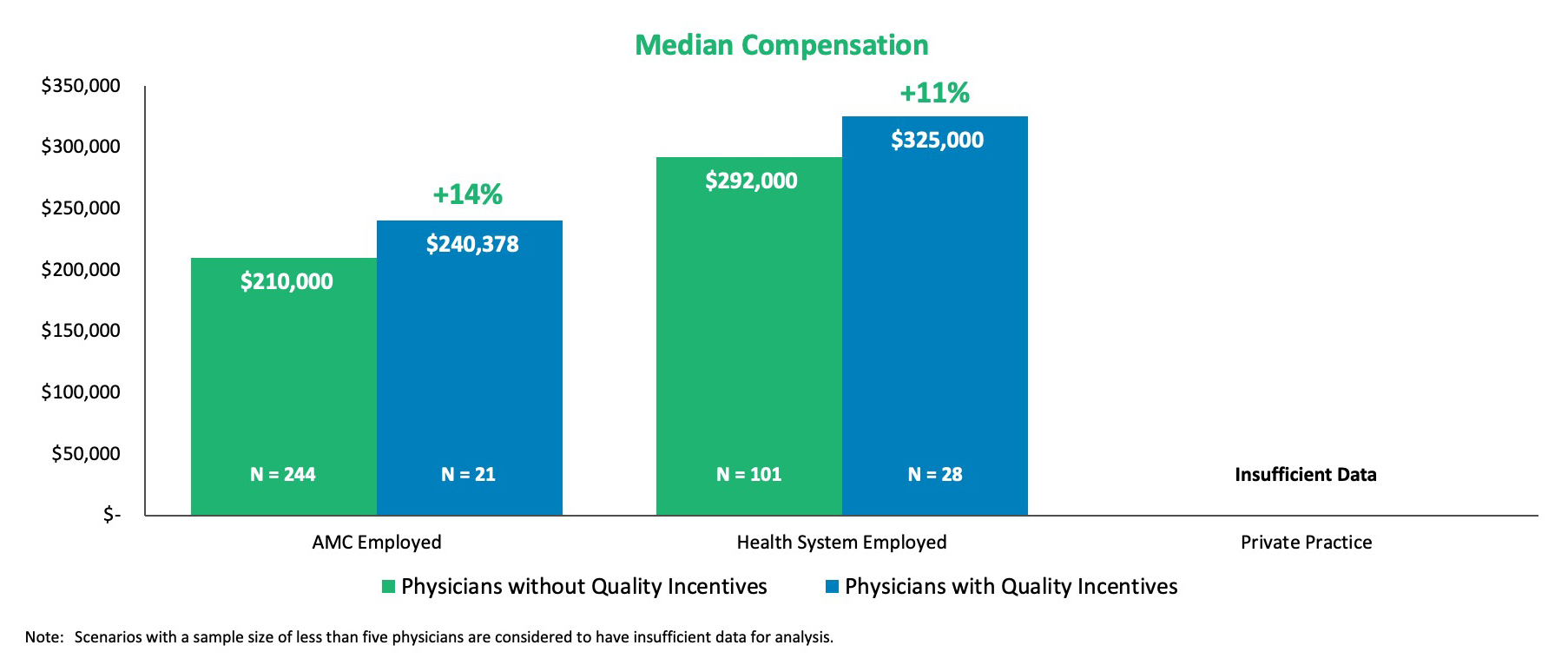Previous Page
${prev-page}
Next Page
${next-page}


Negotiation Process
Negotiation Process
D. Compensation for Quality Metrics in ID
Based on the 2023 IDSA survey data, we know that ID physicians employed by a hospital/health system or AMC and have a component of compensation tied to their performance in quality metrics earn between 11% and 14% more than ID physicians without any compensation tied to their performance in quality. See figures 5 and 6 for additional details.
Depending on the incentive metric and employment setting, ID physicians who have a component of compensation tied to their performance in quality metrics tend to earn between $9,750 and $25,000 for meeting or exceeding their targets. See figure 6 for additional details.

FIGURE 5: Quality Incentives by Employment Type, ID Physicians
FIGURE 6: Incremental Quality Incentives Earned, ID Physicians
Understanding these facts, ID physicians should consider renegotiating compensation terms with their employers so that their individual or group performance in certain ID-related quality measures is incentivized. See IDSA’s Physician Compensation Negotiation Playbook for additional guidance related to compensation negotiations.
E. Stakeholders for Participation in Value-Based Contracts
To successfully negotiate for participation in value-based contracts (existing or new), it will be vital to identify relevant stakeholders (i.e., hospital administrators versus local regulators and payers) who should be involved in negotiating and implementing VBC. This section includes details on what is needed to negotiate and implement a value-based contract.
F. Decision-Makers for Compensatory Recognition in Value-Based Outcomes
To successfully negotiate for compensatory recognition in an institution’s success in value-based contracts, it will be vital to identify relevant decision-makers on VBC and physician compensation (i.e., hospital administrators and department directors). ID physicians will need to know who in their organization can influence physician compensation in relation to value-based contract performance. For example, ID physicians can align with a chief medical officer, chief operating officer or hospital president regarding value-based contract performance and associated compensation. More specifically, alignment can occur with a chief financial officer to determine upfront nominal costs that result in significant downstream savings. It is important to consider the advantage of mitigating risk, negative public press and possible litigations when establishing value-based contracts and partnering with decision-makers.